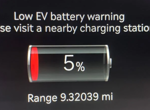While online retailing methods such as email and social media tend to get more attention, the telephone is still a vital contact point in most potential customers’ buying cycles.
The internet certainly enables potential buyers to be more informed and closer to making a decision by the time they interact with a dealer, but the personal phone call still works its magic.
One American study carried out earlier this year found that at least 28% of people who call a dealership will buy a vehicle, and sales calls convert to purchases four times more often than email enquiries.
In the UK, however, the new car market has continued to shrink in the first half of 2019, with new car registrations down 3.4% year-on-year, and used car transactions down 1.7% over the same period, according to the SMMT.
With fewer people buying new and used cars, it is all the more imperative that dealers connect with those potential customers who do contact them by phone, regardless of the time of day or how busy their dealerships are.
In the plate-change month of March 2018, for example, Motors.co.uk reported that more than a fifth (22%) of consumer telephone enquiries went unanswered by dealers who use its service.
Hiring additional in-house receptionists can deal with those demands, but at a time when profit margins are under increased pressure, more and more dealers are looking to third-party call management providers to both cover out-of-hours and overflow service and to cut costs.
Moneypenny, which has 750 staff handling calls and live chat across all its business sectors, said it has seen strong growth in the past year, increasing its business about 20% year-on-year and building relationships across the automotive sector, including with the Independent Motor Dealers Association (IMDA), the Leasing Broker Federation (LBF) and Bosch Auto Centres.
“These days it’s expected that traders can be contacted after hours and at weekends. If a phone or chat goes unanswered, customers will simply move on. It’s about pairing the best people with the best technology – so clients can get the efficiencies they want and expect, while improving service and capturing every lead,” said a Moneypenny spokesperson. “We see the automotive sector as a crucial part of our success and have invested heavily in our automotive team.”
Connie Barrow, director of Forest Call Handling, said her business, which entered the market in late 2018, has had “a great start” and aims to triple in size over the next 12 months.
She said: “I feel most dealerships are under pressure to ‘watch the pennies’ at the moment and therefore may be evaluating the option of outsourcing. This can be a bit scary for dealerships, but if they find a company that they can trust and can gain a relationship with, it’ll be like an extension of their business, but for half the cost.”
Call It Automotive, which currently represents eight manufacturer brands and a number of top 10 AM100 dealer groups, said it has made significant investment in its technology platform and its people in the past 12 months, to support the market as it evolves. Rachel Hooper, client services director, said: “With the ever-increasing focus on the customer and their interactions, we have never been so busy. Clients, both new and old, have been more and more focused on looking for ways to maximise customer engagement, so we have been pioneering new ways to do this.”
Looking beyond the sale
While third-party call handling agencies were once focused primarily on ensuring that customers with a strong interest in buying a car do not slip through the net, that focus has widened to take account of service booking and even recall work.
“Our expansion into the servicing arena has created a secure base for our automotive sector,” said Moneypenny’s spokesperson.
“Two out of three of our calls are service-related, so it was a natural progression and complements our already strong relationships with main dealers and manufacturers.
“One particularly strong growth area has been in handling vehicle recalls.
“Dealers love the fact that they can service a temporary increase in demand cost-effectively and professionally, without the need to hire extra staff.”
Barrow echoed the move to greater integration of call management with wider dealer systems: “We are currently making service and MOT bookings straight onto our customers’ dealership management systems, allowing our customers to concentrate on other aspects of the business.”
Customer contact technology
Although the telephone as a point of customer contact has proved resistant to change, the technology supporting that interaction is constantly evolving, with moves towards systems integration, speech recognition and artificial intelligence (AI).
Moneypenny is about to introduce an AI-assisted digital switchboard for its automotive retail clients, aimed at increasing the efficiency of how its clients’ calls are handled.
“We use speech recognition technology to direct calls that don’t need human input – saving dealers money – but crucially, that’s supported by people, who deal with the more complex and valuable enquiries.”
Moneypenny said advancements in speech recognition in voice search and messaging apps also opens up opportunities for the future, and added that partnerships with companies such as Amazon’s Alexa and WhatsApp are on the horizon.
Moneypenny also said live chat is increasingly coming under the umbrella of call management, which is supported by the fact that live chat management is also offered by Forest Call Handling and Call It Automotive.
“When it launched, many believed live chat would lead to a drop in call volumes, but that’s not our experience. Live chat and call answering are very much complementary services. It’s crucial to help your customers contact you when they want, using the channel they want,” said Moneypenny’s spokesperson.
Hooper said chat was a minor element of Call It Automotive’s business a few years ago, but it is becoming increasingly significant.
“There is also a real need to blend the interaction – many journeys start on the web, move to web chat and then to telephony before a physical dealer visit. Everyone in the automotive sector needs to ensure these changes are fully integrated and seamless from a customer perspective,” she said.
Future challenges in call management
Brexit, GDPR and even the changing nature of the motor retail business itself are all affecting call management providers.
Moneypenny said the key to navigating the challenges is flexibility: “That means growth in areas like vehicle leasing, repair and maintenance. It also means investing in technology, so we can deliver efficiencies and the best possible experience.
“For clients, it’s about helping them to adapt to a changing market – for instance, by only paying for phone and live chat cover when they need it. Hiring an in-house receptionist is great, but it’s a fixed cost that dealers need to pay, whether the phones are ringing off the hook or sat in silence.”
To help meet future challenges, Call It Automotive has revised its pay and bonus structures.
Hooper said: “We have re-thought our approach to the people that work for us and have seen a range of enhancements to our remuneration package so as to attract the best quality of staff.
“We commissioned a full review of our operational front-end team and introduced a significant increase in their basic wage, but also introduced a productivity and quality bonus – with quality being the overriding factor – to ensure we encourage the required behaviours and outcomes.”
Barrow said the “dreaded B-word” remains the biggest obstacle: “I think the uncertainty around Brexit may affect some of our clients and we face the same challenges when looking at investments and growth opportunities.”
FIN O'REILLY


















Login to comment
Comments
No comments have been made yet.